Table of Contents
The Jammu and Kashmir Services Selection Board (JKSSB) is soon set to begin its recruitment process for the hiring of 292 Junior Engineers (JEs). If you’re an aspiring candidate for this role, it’s crucial to familiarize yourself with the JKSSB JE Syllabus 2025 and exam pattern. Understanding the syllabus and exam pattern is essential since the selection process includes a written examination. In this article, we provide a detailed overview of the syllabus and exam pattern, helping you prepare effectively for the upcoming recruitment.
JKSSB JE Syllabus 2025
Candidates preparing for the written examination should take the time to thoroughly familiarize themselves with the JKSSB JE Syllabus and carefully revise all the relevant topics. Having a clear understanding of the syllabus is crucial, as it enables candidates to focus their efforts on the right areas during their preparation. While the JKSSB has not yet released the official syllabus for 2025, candidates can refer to the syllabus and exam patterns from previous years. This will provide valuable insight into the subjects covered in the exam and help candidates strategize their study plan effectively.
JKSSB Junior Engineer Syllabus 2025- Overview
Candidates who are interested in making a career with the JKSSB, can check the key details of JKSSB JE Recruitment 2025 from the table below.
| JKSSB Junior Engineer Syllabus 2025- Overview | |
| Organization | Jammu and Kashmir Services Selection Board (JKSSB) |
| Post Name | Junior Engineer |
| Number of Vacancies | 292 |
| Application Starts | 8th March 2025 |
| Last Date to Apply | 07th April 2025 |
| JKSSB JE Exam Pattern | Available Here |
| JKSSB JE Exam Syllabus | Available Here |
| Official Website | jkssb.nic.in |
JKSSB JE Exam Pattern 2025
For the convenience of candidates, we have provided the previous year’s exam pattern below. Referring to it can give you a better idea of the structure and format of the upcoming examination. The exam will consist of multiple-choice questions (MCQs), and all questions will be in English. Additionally, there will be negative marking, where 1/4th of the marks will be deducted for each incorrect answer. Candidates need to keep this in mind while attempting the exam to avoid unnecessary marks deductions.
| JKSSB JE Exam Pattern | |||
| Section | Total Marks | Total Time Duration | Questions |
| Technical Subject | 120 Marks | 120 Minutes | 120 Questions |
JKSSB JE 2025 Detailed Syllabus
Candidates can find the consolidated JKSSB JE Syllabus for Junior Engineer positions in Electrical Engineering below. The organization is expected to release the detailed syllabus for the year 2025 soon. To stay updated with any changes or updates to the syllabus, be sure to bookmark this page. We will update you with any new information or modifications as soon as the official syllabus for 2025 is released. This will ensure you are always well-informed and prepared for the examination.
JKSSB JE Electrical Syllabus
The JKSSB JE Syllabus for Electrical is summarized in the table below for the proper understanding of the candidates:
| JKSSB JE Electrical Syllabus | |
| Topic | Topics |
| Electrical Machines | Transformers (Types, Efficiency, Losses), DC Machines (Motors & Generators), Induction Motors, Synchronous Machines, Speed Control Methods |
| Basic Electrical Circuits and Fields | Ohm’s Law, Kirchhoff’s Laws, Series & Parallel Circuits, Power & Energy, Star-Delta Transformation, Network Theorems |
| Electrical Measurements & Instrumentation | Measuring Instruments (Ammeter, Voltmeter, Wattmeter), Errors & Calibration, Transducers, Digital Meters |
| Control Systems | Open-loop & Closed-loop Control, Transfer Functions, Stability Analysis, PID Controllers, Time & Frequency Domain Analysis |
| Power Systems | Generation (Thermal, Hydro, Nuclear, Renewable), Transmission & Distribution, Fault Analysis, Circuit Breakers, Protection Systems |
| Power Electronics | Semiconductor Devices (Diodes, SCR, MOSFET, IGBT), Rectifiers, Inverters, Converters, Choppers, Applications in Drives |
| Utilization of Electrical Energy | Illumination, Electric Heating & Welding, Traction Systems, Energy Conservation Techniques |
| Electromagnetic Theory | Electrostatics, Magnetostatics, Electromagnetic Induction, Maxwell’s Equations, Wave Propagation |
| Signals & Systems | Basics of Signals, Fourier Transform, Laplace Transform, Convolution, Filters |
JKSSB JE Civil Syllabus
The JKSSB JE Syllabus for Civil is summarized in the table below for the proper understanding of the candidates:
| JKSSB JE Civil Syllabus | ||
| Topic | Syllabus | Marks |
| Surveying | Importance of surveying, principles, and classifications, measurements of distance and directions, chain surveying, compass surveying, leveling, tachometer, theodolite, traversing, contouring, plane table surveying, curves. | 10 Marks |
| Mechanics and Structural Analysis | Introduction, Concept of rigid body scalar and vector quantities, laws of forces, moment, friction, the center of gravity, simple machines, torsion, Properties of material, Bending moment, and shear force in statistically determining beams. Simple stress and strain relationship. Stress and strain in two dimensions, principal stresses, and stress transformation. Simple bending theory, flexural and shear stresses, unsymmetrical bending, shear center. Thin-walled pressure vessels, uniform torsion, buckling of column, combined and direct bending stresses. Slope and deflection, analysis of trusses. | 15 Marks |
| RCC Structures | Concrete technology, Ingredients of concrete, water-cement ratio, workability properties of concrete, admixtures, special concretes, Non-destructive tests, and basics of mix design. Concrete design working stress and limit state design concepts, analysis of ultimate load capacity, and design of members subjected to flexure, shear, compression, and torsion by limit state methods. Basic elements of prestressed concrete, analysis of beam sections at transfer and service loads, one-way slab, and two-way slab. | 15 Marks |
| Soil Mechanics | Origin of soils, properties, soil classification, three-phase system, fundamental definitions, relationship and interrelationship, the flow of water through soils, permeability & seepage, effective stress principle, deformation of soils, consolidation, compaction, shear strength characteristics, plate load test, SPT, density control, Measurement of field density by core cutter and sand replacement method, soil exploration, bearing capacity and its methods | 10 Marks |
| Fluid Mechanics and Hydraulics | Properties of fluids, hydrostatic pressure, measurement of pressure, flow measurements, flow through pipes, flow through open channels, hydraulic pumps, the principle of conservation of mass, momentum, energy, and corresponding equations, potential flow, applications of momentum, and Bernoulli’s equation, laminar and turbulent flow, flow in pipes, pipe networks. Concept of boundary layer and its growth. Uniform flow, critical flow, and, gradually varied flow in channels, specific energy concept, hydraulic jump Forces on immersed bodies, flow measurements in channels, tanks, and pipes. Dimensional analysis and hydraulic modeling Kinematics of flow. | 15 Marks |
| Irrigation Engineering | Introduction, the water requirement of crops, hydrological cycle, Dams, Canals, dams, canal headworks, and regulatory works, cross drainage works, hydraulic structures, river training works, water-logging, drainage, groundwater recharge, well hydraulics | 10 Marks |
| Water supply and wastewater Engineering | Introduction, the quantity of water, quality of water, water treatment, conveyance of water, laying out of pipes, Building water supply, water supply fixtures, and installation, plumbing, sewerage system, laying and construction of sewers, sewage characteristics, Methods of disposal, sewage treatment, building drainage, air, and noise pollution | 10 Marks |
| Highway Engineering | History of the development of highways and planning, Definitions of various terms used in highway engineering., Methods of road construction, IRC classification, Highway surveys and plans Geometric design, Different types of road materials in use, Binders, Types of pavement, CBR method, subgrade preparation, WBM, WMM, Bituminous Macadam, dense bituminous macadam, special problems in hill road | 10 Marks |
| Railway Engineering | History of Indian railways, Gauges used, the permanent way its components, Types of rails, creep, welding, Rail fixtures and fastenings, Signaling, Points and Crossings, Bridge terminology, classification, components, foundations. | 10 Marks |
| Constructional Planning Management | Network diagrams, PERT-CPM, cost optimization contracts, tenders, depreciation, valuation, organization, measurement books, cash book, functions of management, construction planning, quality control, inventory control, Estimation and costing definitions, methods of estimation, and type of estimates | 15 Marks |
JKSSB JE Mechanical Syllabus
The JKSSB JE Mechanical Syllabus for the junior engineers in mechanical is given in the table below:
| JKSSB JE Mechanical Syllabus | ||
| Topic | Syllabus | Marks |
| Theory of Machines and Machine Design | Four bar linkage and link motion, Flywheels and fluctuation of energy, Power transmission by belts-V-belts, and Flat belts. Gears-Type of gears, gear profile, and gear ratio calculation. Cams. Governors-Principles, and classification. Design of keys, shafts, Riveted joints, couplings | 15 marks |
| Thermal Engineering and Refrigeration & Air-conditioning | Thermodynamics: Heat, work, and temperature, First and second laws of thermodynamics. Carnot, Rankine, Otto and Diesel Cycles. P-v & P-T diagrams H2O. Saturated, wet & superheated steam. Definition of dryness fraction of steam, degree of superheat of steam. Rankine cycle of steam: Simple Rankine cycle, plot on P-V, T-S, h-s planes, Rankine cycle efficiency with & without pump work. Concept of COP, Carnot Cycle, Vapour compression cycle. Refrigerants. Psychometry, DBT, WBT, DPT. | 20 marks |
| Engineering Mechanics and Strength of Materials | Laws of forces, Equilibrium of Forces, Moment of Inertia, and Laws of motion. Friction. Concept of simple machines, M A, V R, %age. Concepts of stress and strain, Elastic limit, and elastic constants. Bending moments and shear force diagram. Stress in composite bars. Torsion in circular shafts. Columns: Euler’s and Rankine’s theories. Thin-walled pressure vessels. | 15 marks |
| Fluid Mechanics & Machinery | Properties & Classification of Fluids, Newton’s law of viscosity, Fluid Statics, Measurement of Fluid Pressure by Manometers, U-tube, Inclined tube. Fluid Kinematics: Streamline, laminar & turbulent flow, external & internal flow, continuity equation. Dynamics of ideal fluids: Bernoulli’s equation, Total head; Velocity head; Pressure head. Measurement of Flow rate, Basic Principles & working of Venturimeter, Pitot tube, and Orifice meter. Hydraulic Turbines & Centrifugal Pumps | 15 marks |
| Material Science & Production Engineering | Structure of metals, Space lattice, Unit cell, BCC, FCC, etc, Iron carbon diagram, Classification of Steels: mild steel & alloy steel. Heat treatment of steel. Welding – Arc Welding, Gas Welding, Resistance Welding, Special Welding Techniques i.e. TIG, MIG. Brazing & Soldering, Welding Defects & Testing. Foundry & Casting methods, defects, and different casting processes. Forging, Extrusion, etc. Metal cutting principles, cutting tools. Basic Principles of Machining with Lathe, Milling, Drilling, Shaping, Grinding. Machine tools & manufacturing processes. | 20 marks |
| Industrial Management and CAD/CAM | Planning, Organizing, Leading, Controlling. Inventory Control, Inspection & Quality Control. Basic concepts of CAD/CAM. NC, DNC, and CNC machines. | 20 marks |
| Metrology and Automobile Engineering | Tools used in Linear Measurements, Angular Measurement, and Surface finish. Limits fits & Tolerance, Error, Classification of Automobiles. Transmission, Steering, Braking, Suspension system. IC Engine Performance, IC Engine Combustion process, Cooling, and Lubrication system in I.C Engine | 15 marks |
JKSSB JE Syllabus PDF Download Link
Candidates who want to prepare for the JKSSB Junior Engineer examination can check the JKSSB JE Syllabus PDF Download Link provided below. The detailed JKSSB Junior Engineer Syllabus 2025 for Junior Engineer posts will be out soon. Till then, you can refer to the below syllabus.
JKSSB JE Syllabus PDF Download Link
| Related Article |
|
| JKSSB JE Recruitment 2025 | JKSSB JE Previous Year Papers |
| JKSSB JE Salary | JKSSB JE Eligibility Criteria |
| JKSSB JE Selection Process | |

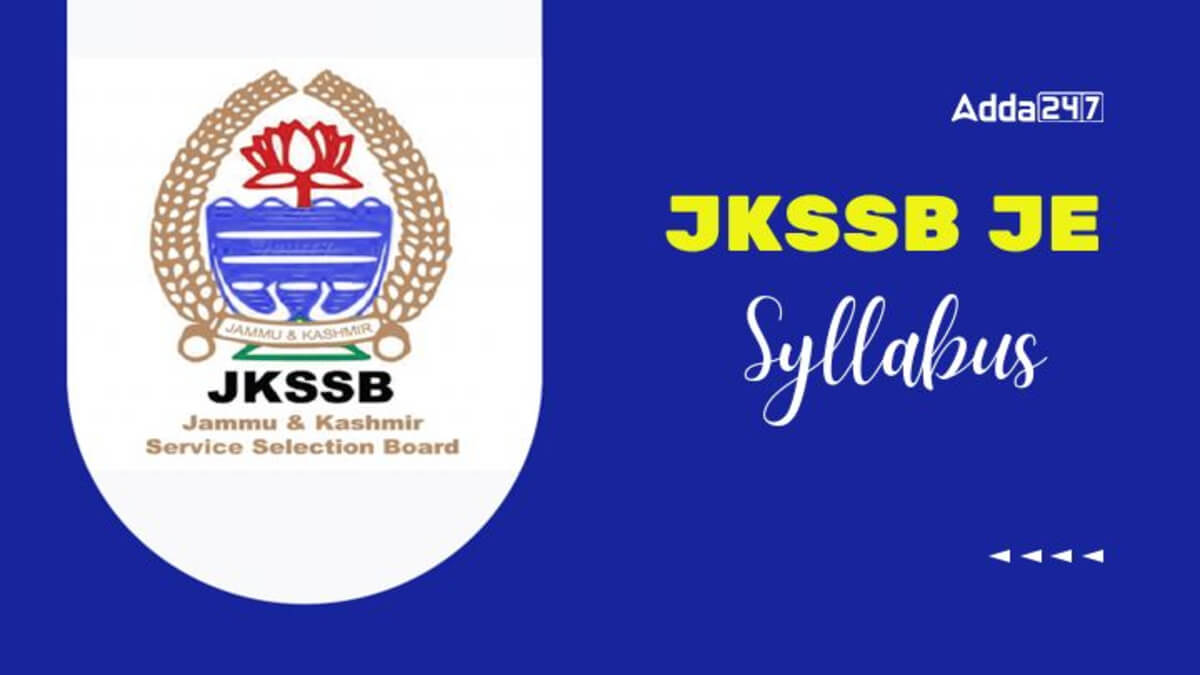
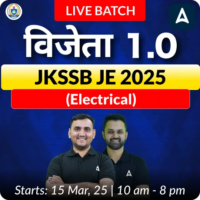

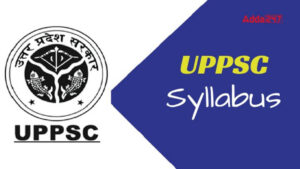 UPPSC Polytechnic Lecturer Exam Syllabus...
UPPSC Polytechnic Lecturer Exam Syllabus...
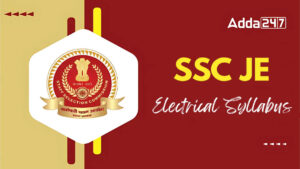 SSC JE Electrical Syllabus 2025 For Pape...
SSC JE Electrical Syllabus 2025 For Pape...
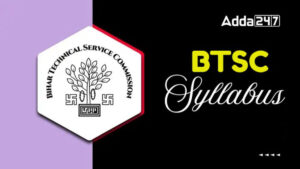 BTSC JE Syllabus and Exam Pattern 2025-2...
BTSC JE Syllabus and Exam Pattern 2025-2...





